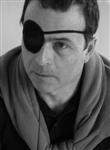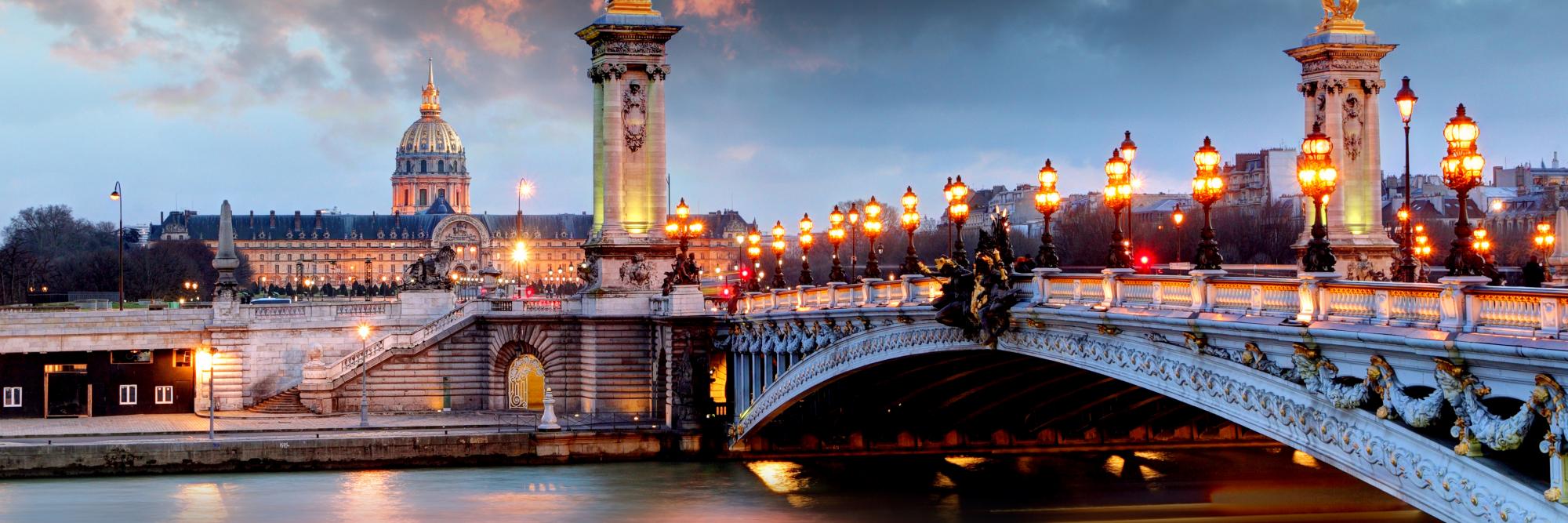 Author and tour guide David Downie is a San Franciscan who moved to Paris in the 1980s and divides his time between France and Italy. His travel, food and arts features have appeared in over 50 magazines and newspapers worldwide. He’s a European correspondent for Gadling.com and is the author of two thrillers and a dozen nonfiction books, including the critically acclaimed, best-selling Paris, Paris: Journey into the City of Light.
Author and tour guide David Downie is a San Franciscan who moved to Paris in the 1980s and divides his time between France and Italy. His travel, food and arts features have appeared in over 50 magazines and newspapers worldwide. He’s a European correspondent for Gadling.com and is the author of two thrillers and a dozen nonfiction books, including the critically acclaimed, best-selling Paris, Paris: Journey into the City of Light.
His author website is www.davidddownie.com.
Read more about the country in the Expat Arrivals expat guide to France, or read more expat experiences in France.
About David
Q: Where are you originally from?
A: San Francisco, California, USA
Q: Where are you living now?
A: Paris, France
Q: How long have you lived here?
A: 26 years
Q: Why did you move; what do you do?
A: I moved to Paris because it seemed like a good city in which to try my luck as a writer. I am in fact a freelance writer and author now of about 12 books and hundreds of articles published worldwide.
About Paris
Q: What do you enjoy most about Paris; how’s the quality of life?
A: Paris is one of the greatest cities in the world for many reasons, from the handsome cityscape to the quality of public services (transportation, health) to the museums and cultural life, the food, cafés, public parks and more. The location in the heart of Europe is also very handy: from Paris, you can travel just about anywhere in Europe by TGV or airplane in a matter of hours. The quality of life is about as high as it can get. I’ve lived in San Francisco, San Diego, New York, Providence (Rhode Island), Rome, Milan, Padua and elsewhere, and Paris is superior in most departments (though admittedly, I haven’t lived everywhere, so cannot pronounce Paris the world’s greatest city, period, as many do).
Q: Any negatives? What do you miss most about home?
A: The negatives revolve around the challenges of everyday life in Paris: the bureaucracy, red tape and paperwork for everything are prodigious. The Parisians can be quite chilly and aggressive (though many are perfectly civil). There’s also a rising tide of xenophobia and nationalism, and the French brand of nationalism is very unpleasant indeed. There are two other considerable negatives that spring to mind: the cost (Paris is hideously expensive) and the foul air.
What I miss most about San Francisco is the openness of the people, the friendliness, the lovely setting by the Pacific Ocean, and the clean air.
Q: Is the city safe?
A: Paris is amazingly safe, especially for a big city. Some suburban areas and a few seedy parts of the central core are dicey, but I’ve lived here 26 years and have never been mugged or attacked and have seen a total of perhaps three fistfights. The most dangerous thing here is the traffic: crossing certain streets is a challenge!
Q: Describe an ideal way to spend a weekend in Paris?
A: Pick two favorite museums (there are 150 of them in Paris) and two favorite parks, and spend the day moving from one to the other at a leisurely pace, stopping for coffee and refreshments, and lunch and dinner en route. If you’re really ambitious, you might tackle a few temporary exhibitions, churches, and monuments, too. And of course you’ll want to find time to take a custom-guided tour of the city with someone who really knows Paris well.
About living in Paris
Q: Which are the best places/suburbs to live in Paris as an expat?
A: Anywhere in the center of town is fine, especially within the first eight arrondissements, but the most coveted addresses are in the Marais, the Latin Quarter, the 7th arrondissement and parts of the 8th and 16th arrondissements. Of the suburbs, the most pleasant are Saint-Mandé, Saint-Germain-en-Laye, and Neuilly (though they’re rather stuffy).
Q: How do you rate the standard of accommodation?
A: Very high, with the caveat that New World visitors might find some of the hotel rooms quite small and the offerings at breakfast rather skimpy. That is not the case in the luxury hotel categories, clearly.
Q: What’s the cost of living compared to home? What is cheap or expensive in particular?
A: The cost of living here in Paris is very high. Few things are cheap other than public transportation and certain cultural venues: the museums operated by the City of Paris are free, for instance. Rent, food, fine restaurants and the theater are expensive, more expensive than in San Francisco, but perhaps less than in London, New York, Tokyo and other world capitals.
Q: What are the locals like; do you mix mainly with other expats?
A: The Parisians are the subject of many books, and it would take me several pages just to begin to bring them to life here. Paris is an old city with many layers, and French civilization is also complex and old. The true Parisians are rare; most of the people you meet here are from the provinces or are foreign. True Parisians come in a wide variety of temperaments and characters; many are reserved and distant, and others are pushy and unpleasant. By and large, they are not cuddly or welcoming. Millions of people, including many impoverished immigrants, would like to live in Paris. This has spoiled the locals, but they have long been difficult if history books and literature are to be believed. In my case, I have many French friends, a few of whom are Parisians born and bred. I also have quite a few American, Italian and British friends. None of them consider themselves expats per se, though many have been here for decades.
Q: Was it easy meeting people and making friends?
A: It is easy to meet fellow foreigners and, to some degree, French provincials living here in Paris. It takes many years to befriend a Frenchman. At least, that is my experience. As Sophia Loren famously said, “The French are like Italians in a bad mood.” That is surprisingly accurate (I have lived in Italy, too, and can swear by her words).
Q:What is overrated – and underrated – about Paris?
A: The food is overrated: it is very easy to get a bad meal here and to buy inferior produce. The French do a lot of crowing about the greatness of their cuisine. Also, the contemporary art and cinema scene strikes me as sterile, conformist and enfeebled by state subsidies. A few things are underrated about Paris: everyone in the world seems to think this is Paradise on Earth. It can be a wonderful place to live and work.
About working in France
Q: Did you have any problems getting a work visa/permit?
A: I followed the rules and got my visa and permit in due course. That was in the 1980s. More recent arrivals tell me the process is very difficult today. What is hellish is trying to renew a passport or national ID card. And the social security administration seems lifted from Huxley’s “Brave New World.” Abominable!
Q: What’s the economic climate like in the city? Is there plenty of work?
A: The high-tech sector appears to be thriving. Fashion, design and the arts are dynamic (and often state-subsidized). Other sectors are difficult. The unemployment rate is currently higher than it has been for decades and well over 10%. France has been hit very hard by the worldwide slump. Finding work is not easy.
Q: How does the work culture differ from home?
A: This, too, is the subject of countless books. The French have very peculiar notions – it seems to an “Anglo-Saxon” (as they refer to most English speakers) about hierarchy (they are maddeningly hierarchical), formality (they are extremely formal), flexibility (they are inflexible to the extreme), about risk-taking (they are risk-averse to a startling degree) and about human relations in public and at the workplace (they are cold, aggressive and the opposite of team players). The best book written about the work culture here remains (after 15 years or more) “French or Foe” by Polly Platt.
Q: Did a relocation company help you with your move?
A: No, I moved here myself.
Q: How would you rate the healthcare?
A: Healthcare is excellent here compared to most places, especially the United States. The system is under strain, and the quality of services is declining while costs are rising, but the French have started their slide from a high level.
And finally…
Q: Is there any other advice you like to offer new expat arrivals?
A: Never assume that the French or the Parisians “don’t like us”, “us” meaning foreigners or Americans, British, Australians, etc… Many of the Americans I’ve known here really go on about how the Parisians hate Americans, which is nonsense. Parisians are very hard on each other. They don’t reserve their spleen for Americans! Relax and enjoy the city, bump along with the crowd, and you’ll be fine. Paris belongs to everyone: it’s a great world city, not just the capital of France. Everyone owns it in a sense, just as everyone owns New York, San Francisco and London.
~Interviewed December 2011



